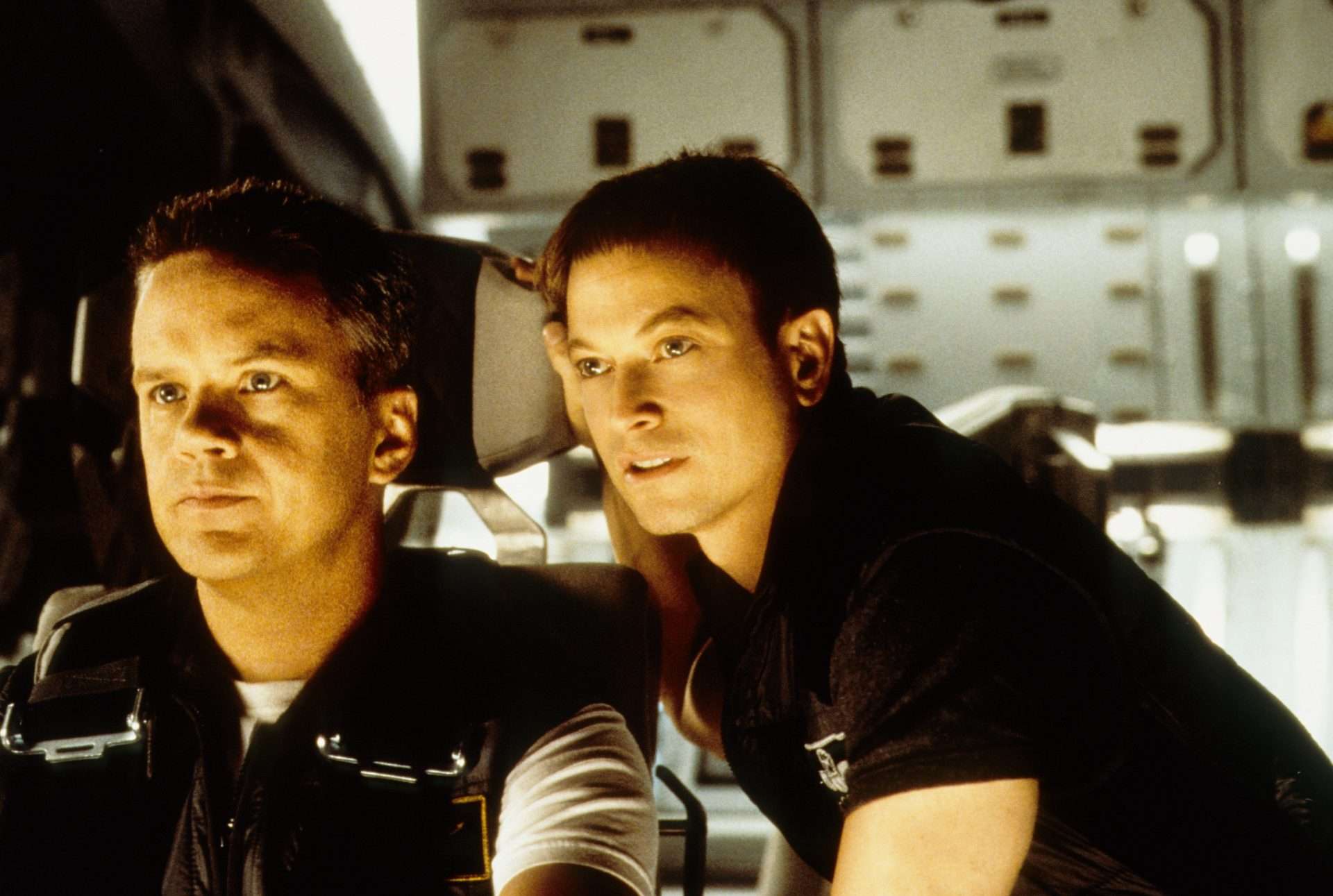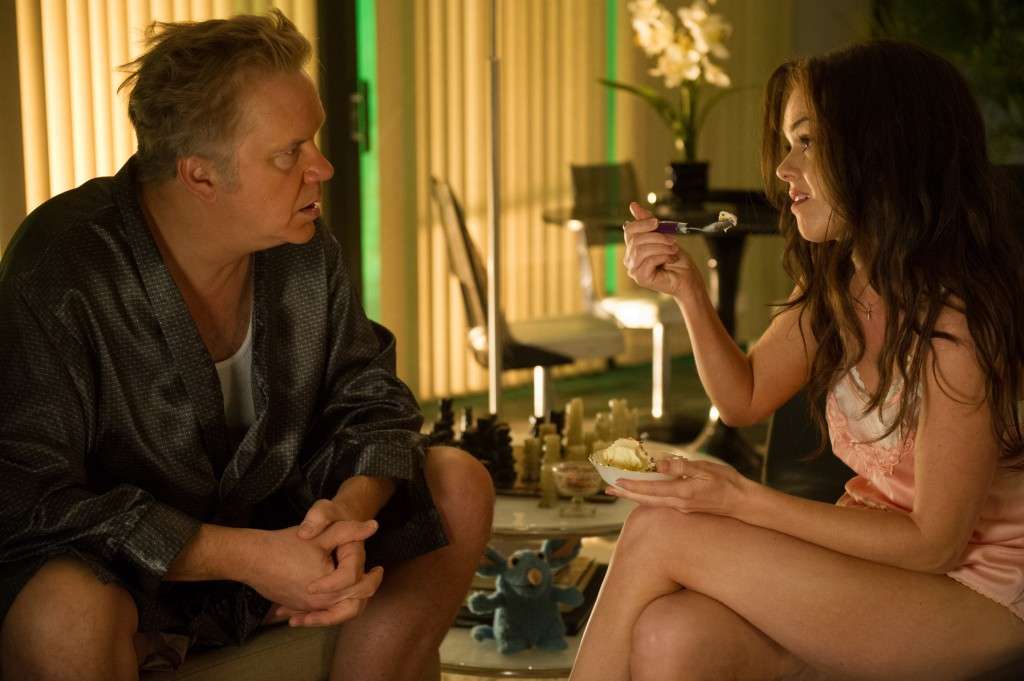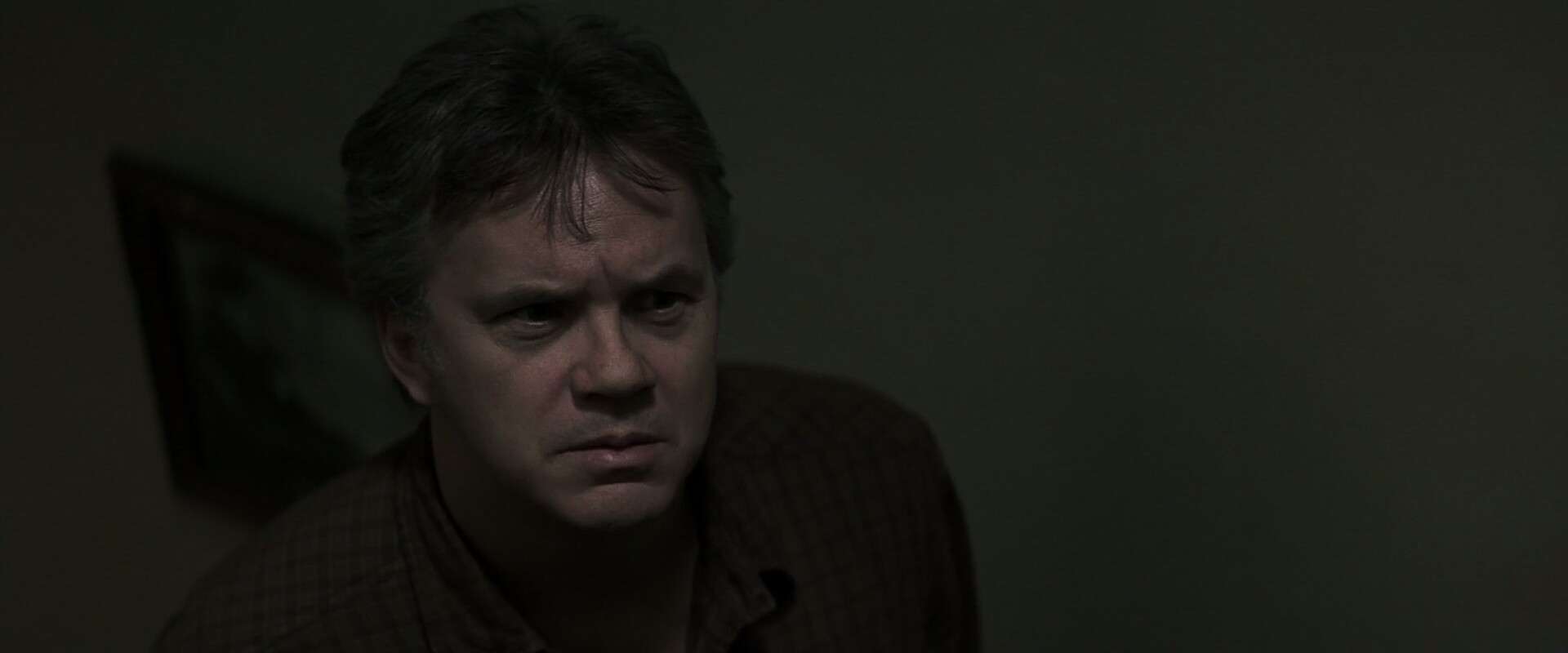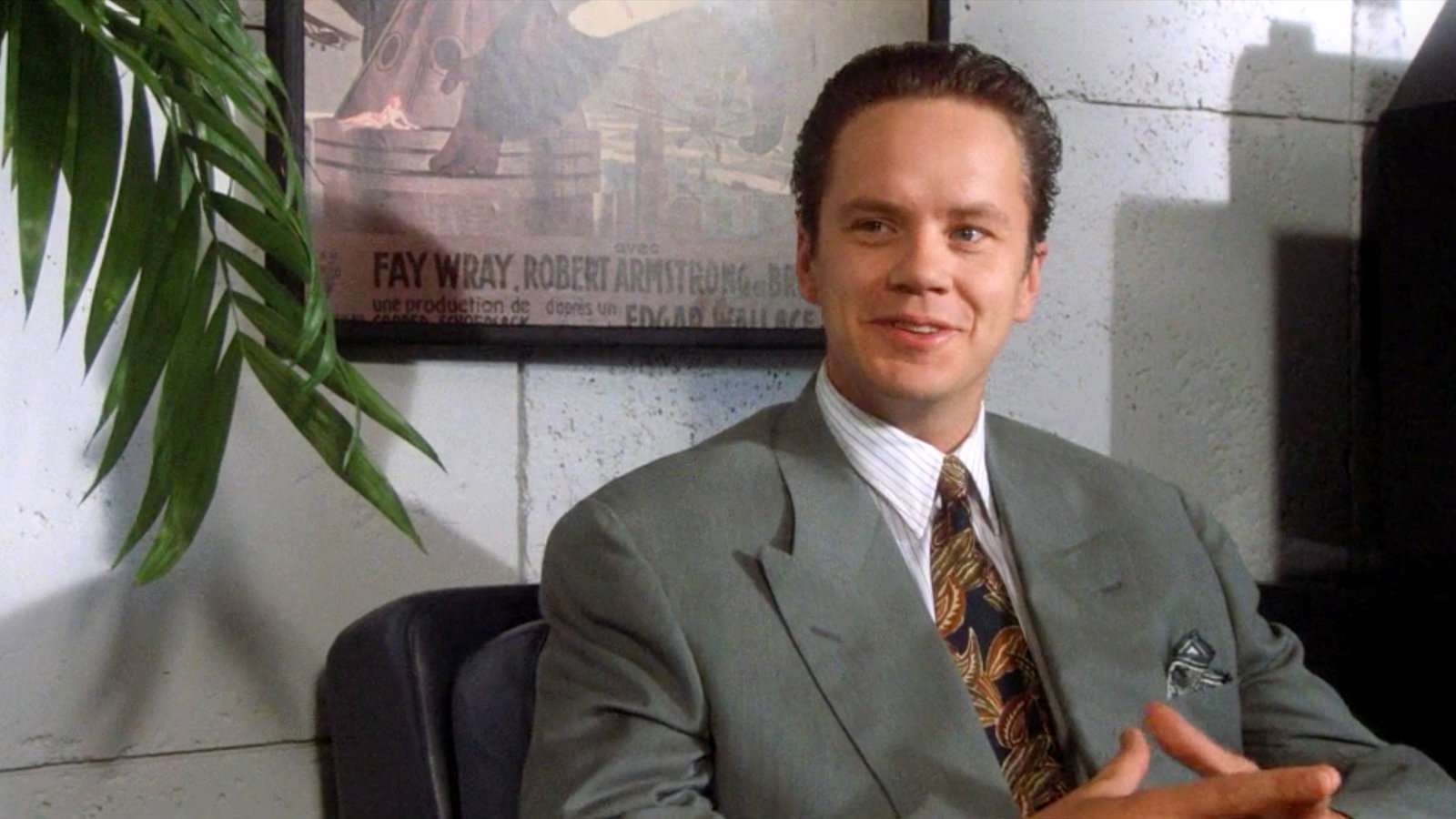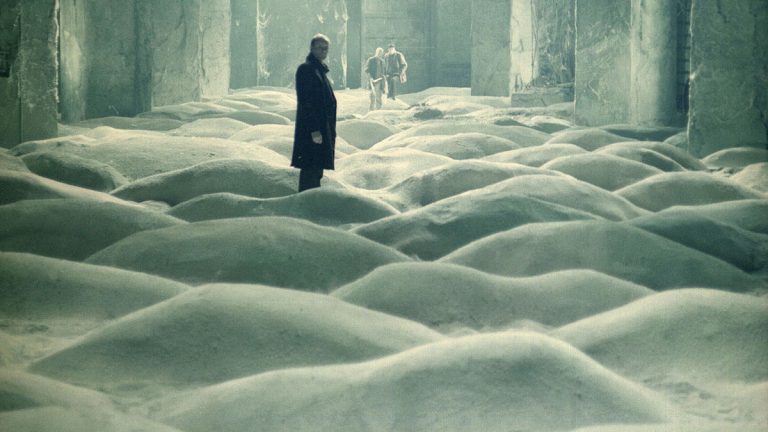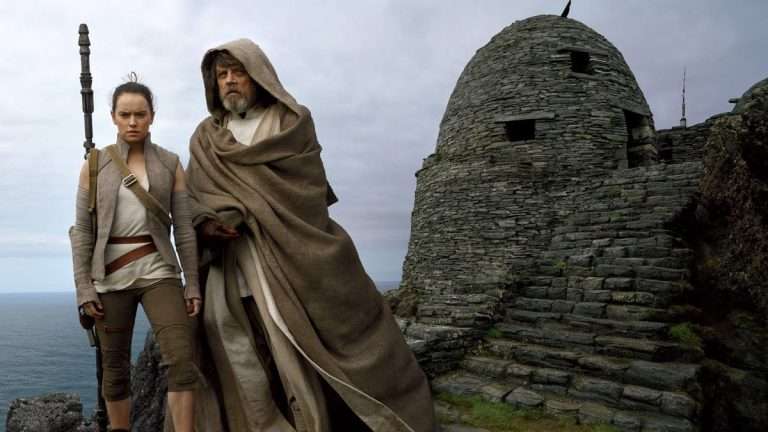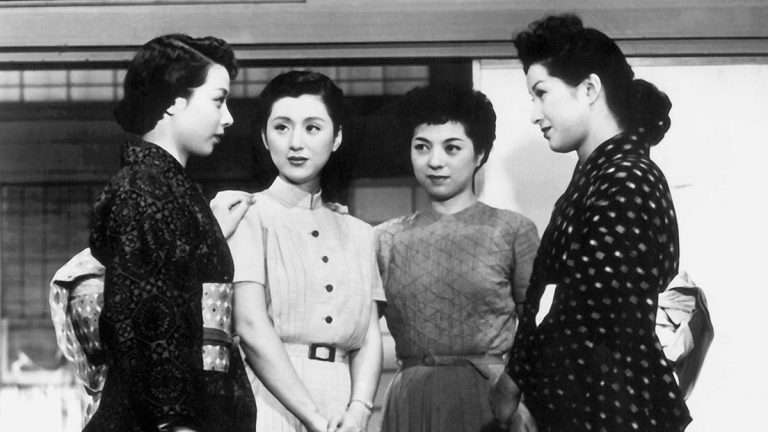Though he does not have the reputation of Brad Pitt or the acclaim of Sean Penn, in the 1990s, Tim Robbins rapidly established himself as the most reliable leading man in Hollywood, equally adept as both a vulnerable audience insert and a smirking anti-hero. With his slicked-back hairdo and sizeable stature (standing at 2 meters tall), Robbins had a naturalistic watchability that made him the perfect anchor for some of the most acclaimed films of the decade and a muse for vaunted auteurs from Robert Altman to Brian De Palma.
In the 21st century, the aging Robbins has shrewdly shifted his attention to supporting roles, including one in Mystic River (2003), which earned him a much-deserved Academy Award. Recently, it has been the role of independent filmmakers to utilize most of his talents and producers at HBO, who cast Robbins as the Secretary of State in the cruelly overlooked miniseries The Brink. And then, of course, there’s his respectable output behind the camera: 1992’s Bob Roberts adapted a cult comedy caricature from Saturday Night Live into one of the finest political satires of the post-Cold War era, whereas Dead Man Walking’s musings about life on death row earned leading lady Susan Sarandon an Oscar.
This top 10 list will act as both an overview of Robbins’ decades-long contributions to American cinema and an evaluation of his finest performances to date, including stone-cold classics and underrated gems.
10. Mission to Mars (2000)
Mission to Mars is certainly the gutsiest film ever to take its name from a Disneyland ride. Brian De Palma‘s direction is typically virtuosic, Ennio Morricone’s score imbues the entire film with sweeping spectacle, and the cast is stacked with some of the era’s most reliable performers. The result is a film both admirable in its ambition and visual clarity but restrained in its execution due to studio interference and shoddy visual effects. Whilst Gary Sinise leads the cast, it’s Robbins who, as Commander Blake, gives the most rewarding performance with a distinctive character arc ending with the ultimate sacrifice and the movie’s most memorable scene.
As Saving Private Ryan realizes, in a story centering on the recovery of a person, the audience’s desire to see the character found is as much motivated by the search party’s likability as it is sympathy for the missing person. For all of its myriad flaws, Mission to Mars understands this, and the dynamics between the traveling space crew are fully realized, and the chemistry between the performers is palpable. Don’t be dissuaded by the poor reviews from some critics. Mission to Mars is a worthwhile revisit whose influence on subsequent sci-fi epics (The Martian in particular) is undeniable.
9. Life of Crime (2013)
From Jackie Brown to Out of Sight, the best adaptations of American novelist Elmore Leonard are slick affairs that use the author’s eye for detail and unwieldy plots of crime and deception to deliver fast-paced and witty blends of action, comedy, romance, and thriller. Life of Crime director Daniel Schechter doesn’t possess the same skills as Soderbergh or Tarantino, of course. Still, his screenplay shows a decent engagement with Leonard’s humor, and his efforts are helped monumentally by an impressive cast list. Joining Tim Robbins on this occasion are Jennifer Aniston, Isla Fisher, and Will Forte, among others, an indication of the film’s comic slant, which is indeed where it excels. The plot is succinctly surmised by the tagline – ‘Right Target. Wrong Woman’.
The comedy is sardonic and occasionally slapstick, but the stakes are high. Central to this contrast is Robbins’ turn as Frank Dawson, a wealthy real estate manager being extorted by roguish, slightly incompetent kidnappers. The epicenter of the action is the room where the kidnappers are keeping Dawson’s wife (Mickey), who, hilariously, has no interest in being returned to her disillusioned life in high society. Frank is primarily a desperate presence over the phone with his tennis shirt and receding hairline. Despite his financial advantages, he is a pathetic figure, recalling his roles as equally unlikeable dirtbags in Altman’s The Player and Short Cuts. Like Mission to Mars, Life of Crime received middling critical reception, but for those to sit back and be entertained and humored by a taut 90 minutes at the movies, it’s a safe and enjoyable bet.
8. War of the Worlds (2005)
Tim Robbins is in Steven Spielberg’s War of the Worlds for all of twenty minutes, but what an impact he makes. The film itself may have been largely forgotten, overshadowed not least by Spielberg’s very own Munich, which came out later that year, but for those who have seen or recently revisited this sci-fi thriller, one plot point will stick vividly in the memory. Shortly after his hot-headed son joins the fight for survival against the aliens, Tom Cruise’s Ray and his daughter Rachel (Dakota Fanning) are taken in by an ambulance driver whose motives and mentality are questionable. The ensuing quarter of an hour is a masterclass in suspense from Spielberg, and his sound design team, who manage to make the fantastical threat of aliens feel grounded and real. Imagine 10 Cloverfield Lane shortened to 15 minutes without a clunky twist ending.
Robbins’ performance is, of course, fantastic and impressive, especially in his quickfire transformation from empathetic first responder to deranged madman. The viewer can tell this is an experienced performer under expert direction having tremendous fun in the role. Yet, the genuine fear his character provokes elevates this supporting role from being just a cameo. It’s a compelling chapter in a film that successfully channels the paranoia of post-9/11 America into the traditional tropes of the alien invasion blockbuster and the raving lunacy of Robbins’ character essential to this balancing act.
7. Marjorie Prime (2017)
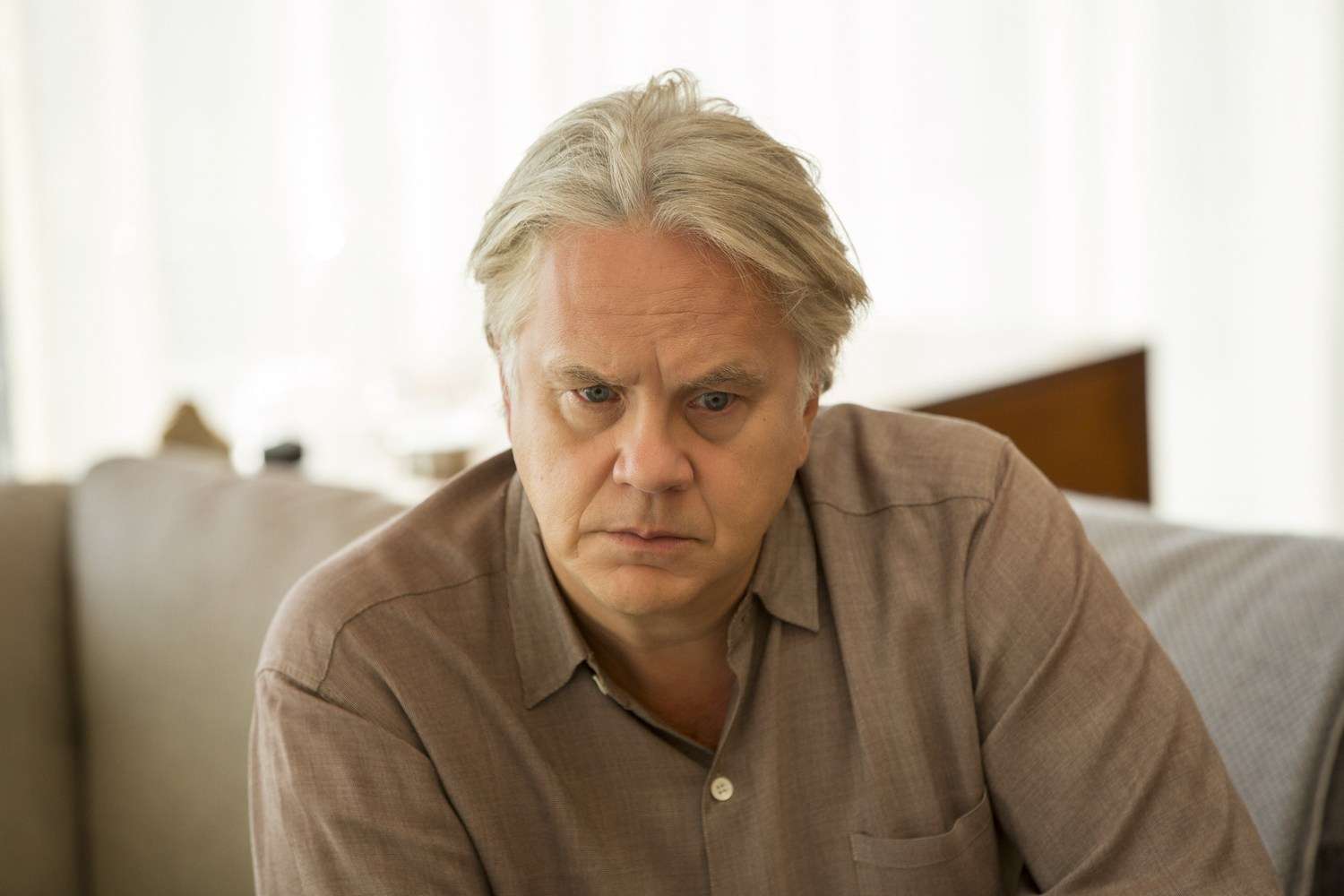
A prescient slice of 2010s indie cinema (adapted from the Pulitzer-winning play of the same name), Marjorie Prime tackles artificial intelligence and the slow process of aging and forgetting with a unique, Black Mirror-style conceit. Robbins stars as Jon, who hires the ‘Prime’ service for his mother-in-law, Marjorie, an Alzheimer’s patient. The programme delivers holograms of memories to patients. In this case, Marjorie’s husband (as a younger man) is portrayed by Jon Hamm, a shrewd casting choice as his natural good looks and charisma lend a devastating melancholy to this technologically enhanced romance.
In truth, Robbins’ satisfactory performance serves as one of many that support a revelatory role for Lois Smith as Marjorie, an actress whom Robbins had previously directed in Dead Man Walking. It’s a testament to the bravery of a performer to tackle such sensitive material with dignity and complexity. The interactions between Smith and Hamm epitomize the movie’s quiet power – moving and thought-provoking with a touch of the surreal. Independent cinema’s position as a counterweight to Hollywood studio hegemony has been longstanding, and in this instance, the opposition is laid bare. Whilst the studios are in a deadlock with unions over the exploitative use of AI to reduce human input into art, writer-director Michael Almereyda presents a measured and beautifully realized engagement with the limits and restraints of technological innovation.
6. The Hudsucker Proxy (1994)
Sandwiched between classics Barton Fink and Fargo within the Coen brothers’ esteemed body of work, The Hudsucker Proxy is a magical blend of Burton, Wilder, and Welles seasoned with the deadpan humor the siblings had already mastered. For the first time on this list, Robbins takes the lead here as Norville, an impressionable and idealistic business graduate installed as the sham CEO of a manufacturing company. The plan is devised by a ruthless corporate bigwig played by a devilishly funny Paul Newman and Jennifer Jason Leigh’s Amy. They complete a trio of central performers who can successfully integrate romantic comedy and slapstick farce into a coherent and unpredictable time at the movies.
Many directors have cast Robbins as a businessman before and since, but the sheer incompetence of Norville distinguishes The Hudsucker Proxy as an inspired vessel for his comedic talents. The bravado is underpinned by a vulnerability and innocence rendered incredibly potent by the contrast with the more obliquely shady Newman. Both characters help to propel this comic romp along at the speed of light. The farcical realities of contemporary capitalism and the banal shenanigans and small print of the stock market are ripe for mockery from the Coens’ wry pen. The duo’s direction is also solid, gaining momentum through rapid edits and camera movements, complemented by some typically excellent photography from Roger Deakins. Often overlooked within the Coen’s larger body of work, this shrewd satire is one of their most endearing, hilarious, and shrewdly political pictures.
Read More: All Coen Brothers Movies, Ranked From “OK” to “Great”
5. Mystic River (2003)
Returning to supporting roles now, and perhaps the most indelible of Robbins’ career: the one that earned him an Oscar. Clint Eastwood’s Mystic River is a sobering drama powered by three powerhouse performances. The Academy also recognized Sean Penn for his sterling lead role as a grieving, frightening father, and Kevin Bacon delivers the best work of his career as the steely detective on the hunt. However, it’s Robbins who provides Mystic River with its empathetic, yearning heart. He plays Dave, a victim of child abuse who strives in his own flawed, tortured way to repair the world of the evil that was thrust upon him. Robbins embodies the role as much physically as he does emotionally. Never has Robbins’ formidable stature looked like such a hindrance, illustrating perhaps the crippling weight of trauma and trying to see the good in a world so enraptured by dark forces.
Eastwood’s direction is formalist and stern, embracing the procedural aspects of the murder mystery and not flinching in the face of morbid, distressing themes. Mystic River and Million Dollar Baby (also an awards-season darling) from the following year are Eastwood at the height of his late-career powers. A mature industry veteran tackling strong screenplays with even stronger performers, Eastwood should be commended for reviving an industry where gripping, adult dramas like Mystic River seem a dying breed in the commercial sense (this made over $150 million worldwide, unadjusted for inflation). These fantastic works should be revisited and appraised once again.
4. Jacob’s Ladder (1990)
In the wake of Fatal Attraction’s success, slick psychological thrillers were all the rage in Hollywood, and none have aged quite as well as Jacob’s Ladder. The film shares a director with Fatal Attraction, Adrian Lyne, and is similarly compelling but excels most in how the screenplay from Bruce Joel Rubin expands the aesthetic and thematic framework of the thriller genre. Beyond the chills and thrills of watching former soldier Jacob Singer’s lucid hallucinations and their devastating consequences, Jacob’s Ladder can be interpreted as a reckoning with the guilt that haunts modern America. Though the combat scenes may be restricted to intermittent flashbacks, this is one of the definitive films about the Vietnam War.
Robbins’ lead performance as Singer is at the heart of this compelling collision of genre and theme. He shrewdly navigates the complexities of Jacob’s fragmented reality with a nuanced, riveting turn, conveying seamlessly the angst and inner turmoil of his current life and suggesting in the subtlest of gestures how things could have gone so differently. Robbins’ humanity in the role heightens the tragedy. He brings a sense of sadness to Jacob’s story, making his journey such a successfully unsettling watch.
Lyne enfolds the viewer in an eerie, surreal atmosphere, supplementing Robbins with fine character actors such as Danny Aiello and even Seinfeld’s Jason Alexander, whose eccentricities are perfectly at home in such an environment. The film has overcome disappointment at the box office to endure as a deserving cult classic and an alternative Halloween staple for those seeking horror from more cerebral locations.
3. Bob Roberts (1992)
Bob Roberts is the only entry on this list where I must also discuss Robbins’ ample ability as a screenwriter and director. Clearly inspired by his recent work with Robert Altman, Robbins penned his take on the pioneering Tanner ’88 miniseries by creating his own political mockumentary. Mr. Roberts (Robbins) is an aspiring Republican who adopts the aesthetics of popular progressive movements to encourage a right-wing agenda. In a blunt mission statement, Roberts calls an album ‘The Times They Are a-Changin’ Back.’ Whilst Roberts is ostensibly a more comical character than the aforementioned Tanner, in 2023, it’s the populist provocateur who most preempts our current political circumstances. Over the past few years, more than one critic has labeled Bob Roberts as a pre-emptive strike on Donald Trump. Even if removed from contemporary political subtext, the film still excels as a work of comedic greatness.
The humor blends visual gags with more pointed (but not preachy) stabs at the establishment. It is also representative of a time in days gone by when the mockumentary was still a novel format to be explored and used by filmmakers to highlight the farcical nature of our news cycle and everyday lives rather than a simple gimmick to address budgetary restraints. It’s awe-inspiring how immersive the fake footage feels considering the sheer number of A-listers in front of the camera: John Cusack, Alan Rickman, Susan Sarandon, James Spader, Helen Hunt, Giancarlo Esposito, to name but a few.
A particularly curious casting choice is the public intellectual Gore Vidal as the left-wing Senator Paiste, transplanting his real-life views and persona onto this fictionalized universe. And at the center of it all, Robbins is as magnetic as the Machiavellian Roberts, engaging and repugnant like the best anti-heroes. Sadly, you can totally imagine someone casting their vote in his favor.
2. The Player (1992)
After sliding into obscurity in the 1980s, New Hollywood renegade Robert Altman roared back into form with 1992’s The Player, with Tim Robbins as his new muse. A creative marriage cemented by the following years’ Short Cuts and Ready to Wear began here with a razor-sharp satire on the film industry. Robbins stars as Griffin Mill, a creatively and morally bankrupt producer who becomes entwined in a murder plot with a screenwriter. Mill’s fragile ego draws him into increasingly troubled situations in this compelling and funny murder mystery, supplemented by brilliant supporting performances. Joining Robbins and his enigmatic love interest, Greta Sacchi, are cameos ranging from Bruce Willis to Burt Reynolds. Rather than distracting from the core plot, the cameos enhance Altman’s world-building and create an authentic, sardonic lampooning of the industry that shunned the director for so long.
The Player displays the height of Robbins’ powers as an irresistibly watchable asshole, in stark contrast to the indelible humanity which defines his roles in Mystic River and the classic movie which tops this list. He’s a performer who we love to watch engaging in immoral acts and squirming his way out of them, using his charisma not to endear sympathy in the viewer but to revel in the corruptibility of a system ripe for comedy. Outward confidence and professional success belie an utter lack of moral conviction or fortitude – whether such a character can ‘get away with it’ (so to speak) is integral to the success of The Player, and Altman explores the question with humor and pathos. Overall, it’s a terrific comedy and one that rewards repeated viewing.
1. The Shawshank Redemption (1994)
Though this article has described and heaped praise onto a diverse array of Tim Robbins’ finest performances, the truth is that he will be mostly remembered for his leading role in one of the most famous movies of all time: The Shawshank Redemption. Frank Darabont’s adaptation of Stephen King’s short story is an enduring American classic for all generations, growing in stature since its 1994 release to now sit comfortably atop the IMDB’s list of the greatest films ever made.
Whilst I would not call it my all-time favorite, there’s an undeniably universal quality and formal excellence to Shawshank – the world’s most emotive prison break drama. The movie’s 142 minutes tell a surprisingly simple story. Robbins plays Andy, framed for the murder of his wife, whose unerring sense of hope is tested by the turmoil of prison life. Eventually, he and an older prisoner named Red (Morgan Freeman, in a career-defining role) decide enough is enough and try to break free.
What justifies this expansive runtime and otherworldly reputation is Darabont’s screenplay, which spends time developing Andy and Reds’ characters in entertaining ways. Of course, the highlight is the performances: Robbins as the straight-laced, upstanding citizen wrongly accused, Freeman as a guilty man seeking redemption from within himself and the lord. The dynamic between Freeman and Robbins is heart-warming and crucial to why this film is one of the most beloved in recent memory.
Despite their different backgrounds, Andy and Red are intrinsically linked by the shared human experiences of love, loss, hope, and forgiveness – both the ability to forgive and the desire to be forgiven. These experiences and emotions also chime with our own, making Shawshank an unforgettable, heart-wrenching, relatable exploration of what it is to be human and a film deserving of its classic status.

